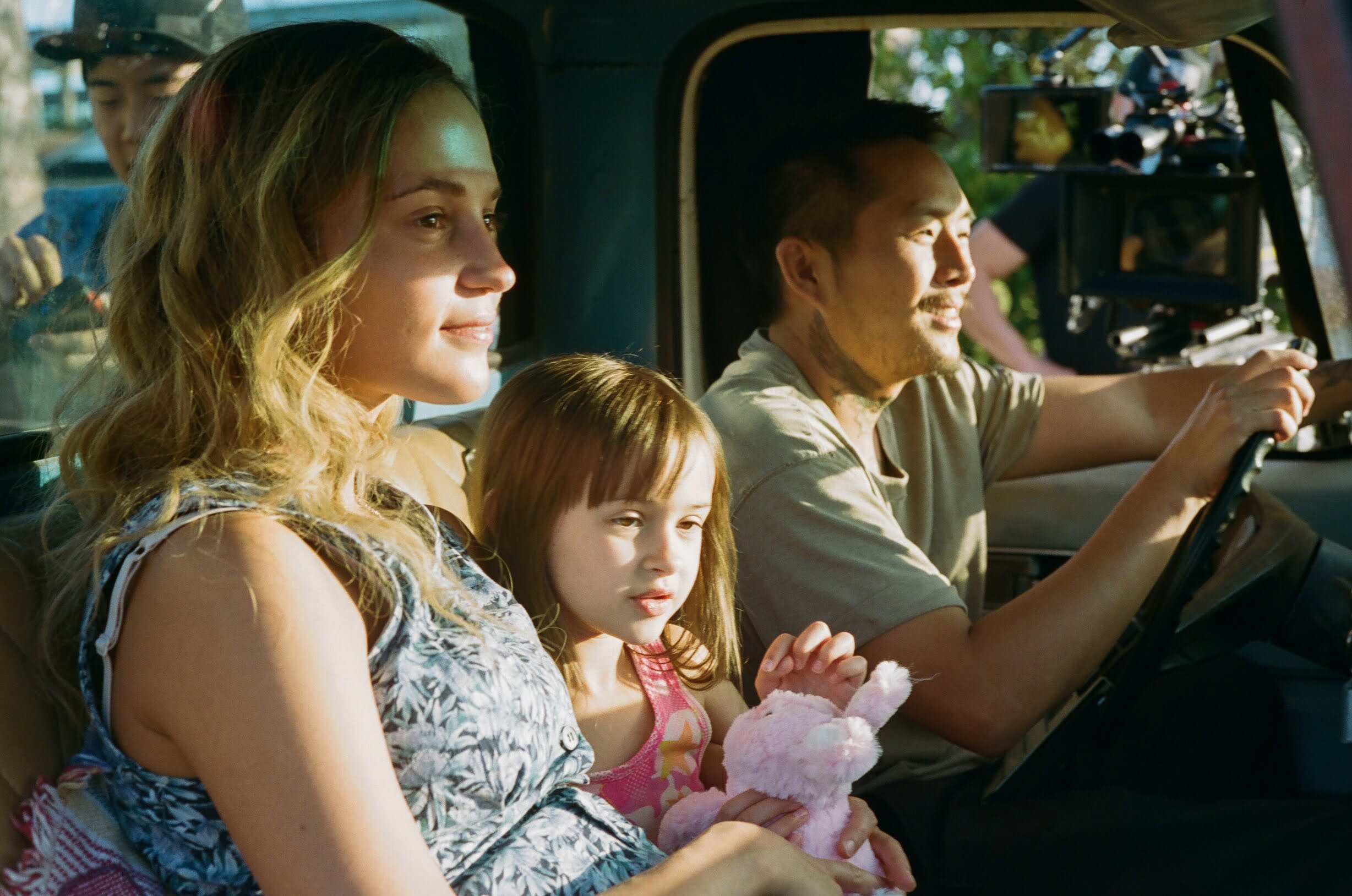Blue Bayou: A 'Message Film' about Deportation Mired in Swampy Melodrama
By Liam Lacey
Rating: C
The film, Blue Bayou, which earned a standing ovation at the recent Cannes film festival, was written, directed by and stars Justin Chon, playing a working-class Louisiana man facing deportation to his birth country of Korea.
The praise for the film — a one-man show by a Korean-American filmmaker at a time of heightened anti-Asian racism and a focus on unjust immigration policies — is understandable. But the film itself is a disappointment, a message film that relies far too much on artless, melodramatic contrivances for its emotional impact.
Alicia Vikander, Sydney Kowalske and John Chon are a happy family, for now, in Blue Bayou.
Chon plays Antonio, a tattoo artist who hangs with a clique of macho motorcycle dudes, and who is struggling to make financial ends meet. We first meet him during a job interview, where the potential employer asks a lot of micro-aggressive questions about Antonio’s background. Antonio and his wife, Kathy (Alicia Vikander) have a baby on the way and a six-year-old daughter, Jessie (Sydney Kowalske). Jessie’s estranged biological father, Ace (Mark O'Brien) is a cop, a sure signal of trouble ahead.
One day at the supermarket, Ace’s racist police partner, Denny (Emory Cohen) harasses Antonio into an altercation. That encounter brings Antonio, who has a youthful felony record, to the attention of immigration authorities.
Because Antonio’s adoptive parents failed to authorize his citizenship before dumping him off in a series of foster homes, and because of his record, he faces deportation. He must either go to Korea (which he left at three years old), to apply to have the order reversed, or stay and fight it, with the risk that a negative judgment will be irreversible.
PROUDLY SUPPORTS ORIGINAL-CIN
A wobbly subplot involves Antonio’s friendship with a terminally ill middle-aged Vietnamese woman, Parker (Linh Dan Pham) who comes to his shop looking for tattoo of a water lily, because “they look like they have no roots, but they do. They cannot survive without them.”
To show him what having roots means, Parker invites Antonio and his family to her home for a barbecue experience courtesy of an Asian-American extended family. The cover band playing at the barbecue inexplicably insists that Kathy sing with them, so she performs the film’s melancholy title song, originally a 1963 hit for Roy Orbison. The title also refers to Antonio’s favourite spot on the bayou, a place that brings back flashbacks of his birth mother in Korea.
In a more conventional film, we might expect the dying but well-off Parker to help out with Antonio’s mounting legal bills. But no such luck. Instead, Antonio stupidly chooses to join with some of his unsavoury old friends and steal a bunch of motorcycles in a showcase window - not the wisest thing to do when you’re trying to prove you’re a solid citizen.
Following its shrill climax, Blue Bayou concludes with a scroll of a handful of real-life Americans, caught in the same limbo, which brings home the inspiration behind the drama. The coda reminds us that some messages are best delivered as documentary rather than didactic fictions.
Blue Bayou. Directed and written by Justin Chon. Starring: Justin Chon, Alicia Vikander, Sydney Kowalske, Mark O’Brien, Linh-Dan Pham, Vondie Curtis-Hall and Emory Cohen. Blue Bayou is in theatres from Friday, Sept. 17.



